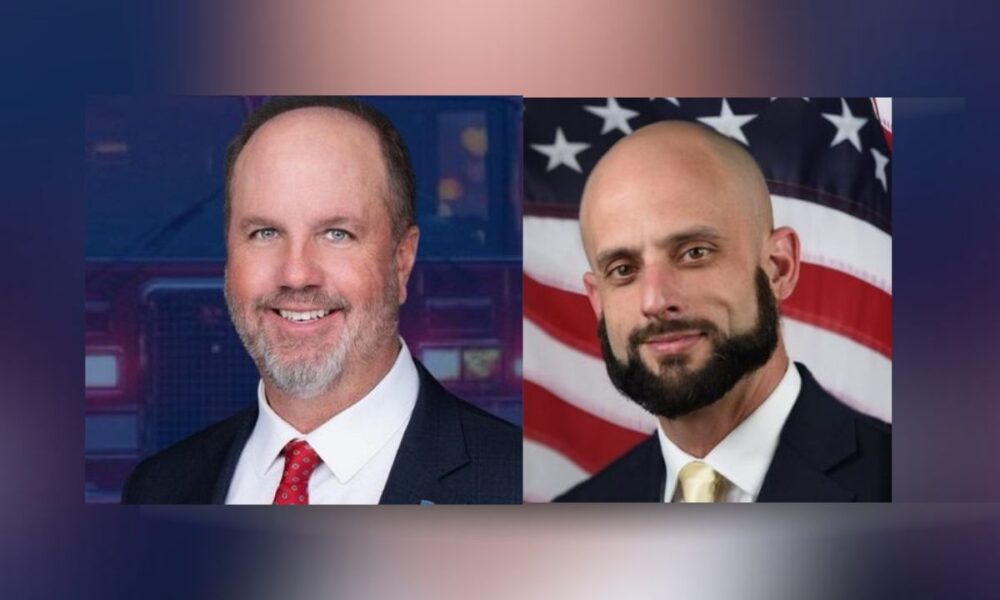With the fate of casino development hanging in the balance, Irving voters will return to the polls Saturday to choose between two sharply divergent visions for the city’s future.
“I want to see gambling not only removed as a permitted use but also become a prohibited use in the PUD-6 zoning,” Sergio Porres, who has positioned himself as an unflinching opponent of casino interests and a critic of establishment politics, said to The Dallas Express.
However, his opponent, David Pfaff, maintains that the issue is largely symbolic. “Casinos are illegal in Texas and have been for over 120 years. That’s a state issue—Irving City Council cannot legalize casinos,” Pfaff said to The Dallas Express. “If that ever changes, I’ve been clear: any zoning decisions would go through a public process, and residents should have the final say through a local vote.”
The contrast in casino policy reflects deeper ideological and strategic divides in the runoff election for Irving’s open Place 2 City Council seat. The contest follows a closely watched May election that saw ardently anti-casino candidates win in two districts while Porres and Pfaff advanced to a runoff after a near-dead heat, with Pfaff earning 47.31% of the vote and Porres 45.11%.
As previously reported by The Dallas Express, both Pfaff and Porres officially oppose the construction of a casino on land controlled by Las Vegas Sands. But Porres accuses Pfaff of benefiting from pro-casino groups and insufficiently distancing himself from their influence. Financial records confirm that the Lone Star Conservative Action Fund—a political group linked to Sands—spent $168,155.69 in support of Pfaff and two other candidates.
Pfaff, for his part, has rejected any implication of allegiance. “I don’t want their [Sands and Lone Star’s] support,” he previously stated in a campaign video. “I cannot be bought.”
Still, Porres argues the influence speaks for itself. “The Las Vegas Sands Corporation is deeply conscious of [Incumbent Place 2 Councilman Brad LaMorgese’s anti-casino record], and that is why they have invested so heavily in seeking a more favorable Council by investing in my opponent,” Porres said to DX.
Beyond zoning and gaming, the candidates diverge sharply in tone, style, and policy emphasis.
Pfaff, a longtime Irving resident and business owner, pitches himself as a pragmatic coalition-builder. “We’re at a crossroads,” he said. “We can either focus on revitalizing our older neighborhoods, growing our economy responsibly, and keeping taxes low—or we can get distracted by manufactured issues and political theatrics.”
“I bring business experience and a long record of civic service—and I intend to govern with focus, not division,” he added.
Porres frames his campaign as a grassroots movement to reclaim City Hall from entrenched interests. “Historically, our City Council is made up of insiders who think they know best and excel at two things: giving lip service to community issues and taking care of each other,” he said. “Our communities feel ignored.”
He’s also been critical of how city leadership has handled controversial development negotiations. “The casino project got as far as it did because it was negotiated behind closed doors and hidden from the public eye—eight out of nine City Council members were not aware of the details until the last moment,” Porres said, vowing to overhaul the city’s relationship with projects perceived as being pushed by the Chamber of Commerce.
Pfaff has tried to keep the focus on core issues such as infrastructure and livability. “My vision is an Irving that thrives from North to South, East to West,” he said. “That means revitalizing our core neighborhoods, modernizing infrastructure, supporting public safety, and creating spaces where families can live, work, and enjoy life without having to leave the city.”
While both candidates say they support safe neighborhoods and quality public services, Porres has criticized Pfaff’s platform as vague and unambitious. “He hasn’t offered any specific ideas besides ‘fixing roads and funding the police.’ To me, those things are baseline assumptions,” Porres said. “Besides his resume, he is not offering voters anything concrete.”
For Pfaff, that resume is an asset. He points to decades of civic involvement—from the Chamber of Commerce to local education organizations—and his pledge to stay above partisan rancor. “My approach is to listen first, lead with data and experience, and focus on long-term results—not short-term headlines,” he said.
The campaign has also highlighted divisions among Irving’s civic and faith-based organizations on the casino issue. CAIR Action Texas initially endorsed Pfaff before rescinding its support, while other Muslim groups later switched their support to Porres, DX reported. “We spent the second week of [early voting] building bridges with the Muslim community,” Porres previously told DX.
With the election days away, each candidate claims momentum.
Pfaff insists he represents continuity and competence without drama. “I believe Irving residents want practical leadership that listens, leads with integrity, and focuses on results,” he said.
Porres sees a chance to reset the city’s trajectory. “This election is about finally breaking the grip of the establishment that has been playing musical chairs,” he said. “I want the voters to know exactly what I stand for so they have a meaningful choice.”
The Place 2 runoff is set for Saturday, June 7.


